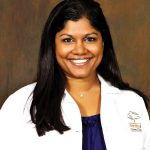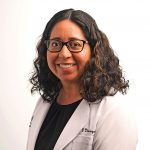Quit smoking, lose weight tops resolutions lists

Local physicians share tips for a healthier new year
Stop smoking now. That initiative, along getting sufficient exercise, eating healthy food, and losing weight if needed, should top everyone’s list of 2018 New Year’s resolutions, according to most local health care professionals.
“If you smoke, stop! If you are thinking about smoking, don’t start,” said Dr. Joe B. “Bill” Putnam, medical director of Baptist MD Anderson Cancer Center. “If you are older and have smoked more than a pack a day for 30 years or two packs a day for 15 years, ask your primary care doctor to have you screened for lung cancer,” Putnam advised.
Putnam’s colleague, Dr. Seth Strope, Head of Urologic Surgery at Baptist MD Anderson concurs. “A lot of people associate smoking with lung cancer, but people don’t realize bladder cancer is also associated with smoking. Cigar and pipe smoking are associated with neck and head cancer,” he said.
Nicotine can lead to gum disease and tooth loss, said dentists Dr. Jacqueline West and Dr. James Schumacher. “Smoking stains your teeth and causes aging vertical lines around your lips as well as increasing your risk of oral cancer,” Schumacher said.
And smoking is not good for your feet either, according to Dr. Troy Harris, a Riverside podiatrist. “Smoking causes blood vessels in the feet and legs to become narrow and blocked, increasing the risk of pain, poor healing from injury or surgery, and dramatically increases the long-term risk of ulceration and amputation for those with diabetes,” he said. “Quitting smoking improves foot health and reduces the risk of developing diabetes, heart disease and stroke.”
Putnam, Strope, Harris, West, and Schumacher are five of 18 local health professionals The Resident polled to compile a list of resolutions to improve health in the new year.
Also included in the survey were Dr. Edward Gorak, hematologist oncologist, Baptist MD Anderson Cancer Center; Dr. Sharon Leonard, Division of Allergy/Immunology Clinic, Nemours Children’s Specialty Care; Dr. Kay Ellen Gilmour of St. Nicholas a retired cardiologist; Dr. Edmund “Ned” Clark, Psychiatrist, Jacksonville VA Outpatient Clinic; Dr. Sonya Dominguez, St. Vincent’s Family Medicine Center, Riverside; Dr. Lakshmi Gopal, Gastroenterologist, Jacksonville VA Outpatient Clinic; Dr. Ann Grenadier, licensed psychotherapist, board certified in counseling, biofeedback, neuro feedback and sex therapy, Biofeedback Associates of Northeast Florida; Dr. Earl Horowitz, geriatric podiatrist, Riverside; Dr. Jila Mahajan, Kids 1st Dentistry; Dr. Lourdes de Armas, Primary Care, Substance Disorders and Physicals; Dr. William “Vaughn” Holland, Ortega Orthodonists; and Dr. Rene Pulido and his brother, Dr. Danny Pulido, both physicians with Emed Multispecialty Group.
Gopal recommended smokers set attainable goals such as smoking one less cigarette a day and rewarding themselves when they finally quit. This works for losing weight, too, she said, noting that using a salad instead of a dinner plate to limit portion size can help to shed pounds. In restaurants share an entrée or bring half your meal home, she said.
Maintaining a normal weight, eating healthy food, and daily exercise were mentioned so often by the physicians they are listed at Nos. 2, 3 and 4. “You don’t have to jump on any specific diet fad to have a positive impact on your health,” said Holland. “Simply incorporate more fruits, vegetables and proteins.”
“Eat more fish, shop the perimeter of the grocery store, and avoid boxed and packaged foods,” suggested de Armas.
Gopal agreed. “Eat more fiber and less processed food,” she said. “The average person should eat between 25-30 grams of fiber daily. A high fiber diet helps lower cholesterol and encourages weight loss. Eating less processed foods helps to reduce inflammation and is easier for your body to digest.” Meanwhile, Strope advised folks to avoid high fat and charred foods. “People always ask me what you should do for prostate cancer prevention, and fortunately the answer is the same as for heart disease – the Mediterranean Diet,” he said.
Dominguez recommends folks incorporate a “Meatless Monday” into their week. “Plant-based diets have many health benefits, and this is a small step to head in that direction while enjoying new recipes,” she said.
Maintaining a healthy weight is as important as exercising for at least 30 minutes three times a week, said Gorak.
“Start walking more,” said Putnam. “A good goal is 10,000 steps a day, but some people get wigged out by that. Any kind of movement you do is good. What’s important is to get off the couch and start walking. It is probably the easiest thing to do and anyone can do it.”
The walking doesn’t need to be all at one time, said Gilmour. “Take a 10-minute walk three times a day. This will improve your posture, core strength, and help to maintain flexibility. You can also use your walking time to blow off steam over a lousy football score or a conversation with a snarky sister-in-law.”
Exercise also helps prevent Alzheimer’s disease and dementia, said Grenadier. “When you exercise, you grow new brain cells. It’s like Miracle Grow for the brain. For your body to work, you’ve got to move it.”
- Quit smoking
- Eat healthy
- Exercise
- Maintain a healthy weight
- Be kind to strangers. Even if it’s just a smile or a simple hello. Your small gesture can change the course of someone else’s day.
- Try a new activity, whether it be a new sport, music lesson, or art class. Stretch your comfort zone. Make new friends.
- Practice random acts of kindness and teach your children to do the same. You have the power to brighten someone’s day with a small action.
- Explore mindfulness and meditation. These activities help you live in the present, cutting down on “noise” that distracts you during the day.
- Get involved: help at your place of worship, a local shelter, or a school. There are many wonderful organizations that could use your time, whether it be once or on an ongoing basis.
- Have one meal a day as a family. It doesn’t matter which meal. Talk about one good thing that happened, one difficult thing that happened, and one kind thing you did.
- Make sure your relationships extend beyond social media. Face-to-face time with friends and family is important. Social media doesn’t provide the same feeling personal contact does.
- Don’t drink and drive. At a party, consider switching to coffee and eliminating alcohol an hour before you leave.
- Develop a hobby. Keep busy doing something you like to do.
- Wear sunscreen. Protect yourself against skin cancer.
- Get a dog or cat.Animals prevent loneliness and provide a sense of purpose. Rescue animals need you, too.
- Make time for your health. Schedule preventative visits with your doctor and dentist.
- Prepare for the next day the night before.Make your lunch, lay out your clothes to save time and eliminate stress.
- Learn to be appreciative. Keep a gratitude journal. It helps to reflect when times are stressful. It is good to count your blessings.

Alleviate stress.
“Even happy moments such as graduating, getting married, and having a baby can be stressful,” said Dr. Lakshmi Gopal. Recognize life’s difficult moments and communicate with someone to help alleviate the burden.
Dr. Lakshmi Gopal, Jacksonville VA Outpatient Clinic

Get sleep
Sleep a full eight hours every 24 hours. Free yourself from the stimulation of television or your mobile device at bedtime, which make it hard to get restful sleep. Without sleep you may have trouble making decisions, solving problems, and controlling emotions or behavior. “The body is like a cell phone, it needs to be recharged,” said Dr. Ann Grenadier.
Dr. Ann Grenadier, Biofeedback Associates of Northeast Florida

Drink in moderation
The rule of thumb is one drink for females, up to two for males, said Clark. “If you have a mental condition, don’t drink at all. Alcohol may relax you in the moment, but it will worsen anxiety and depression. It’s best to be more balanced and live away from the extremes,” Dr. Ned Clark said.
Dr. Edmund “Ned” Clark, Jacksonville VA Outpatient Clinic

Don’t text and drive.
Twenty-five percent of car accidents in the United States are caused by texting. Every day 11 teens will die because they were not concentrating on the road, said Dr. Kay Gilmour.
Avoid sudden bursts of emotional stress.
Heated conversations can lead to high blood pressure, heart attacks and stroke. “Avoid physical harm during family gatherings by not talking about politics,” said Gilmour.
Dr. Kay Ellen Gilmour, retired cardiologist

Be gentle with yourself.
Focus on progress, not perfection, said Dr. Sonya Dominguez.
Dr. Sonya Dominguez, St. Vincent’s Family Medicine Center, Riverside
Read more health tips for the new year in the latest issues of Resident Community News, click here.






